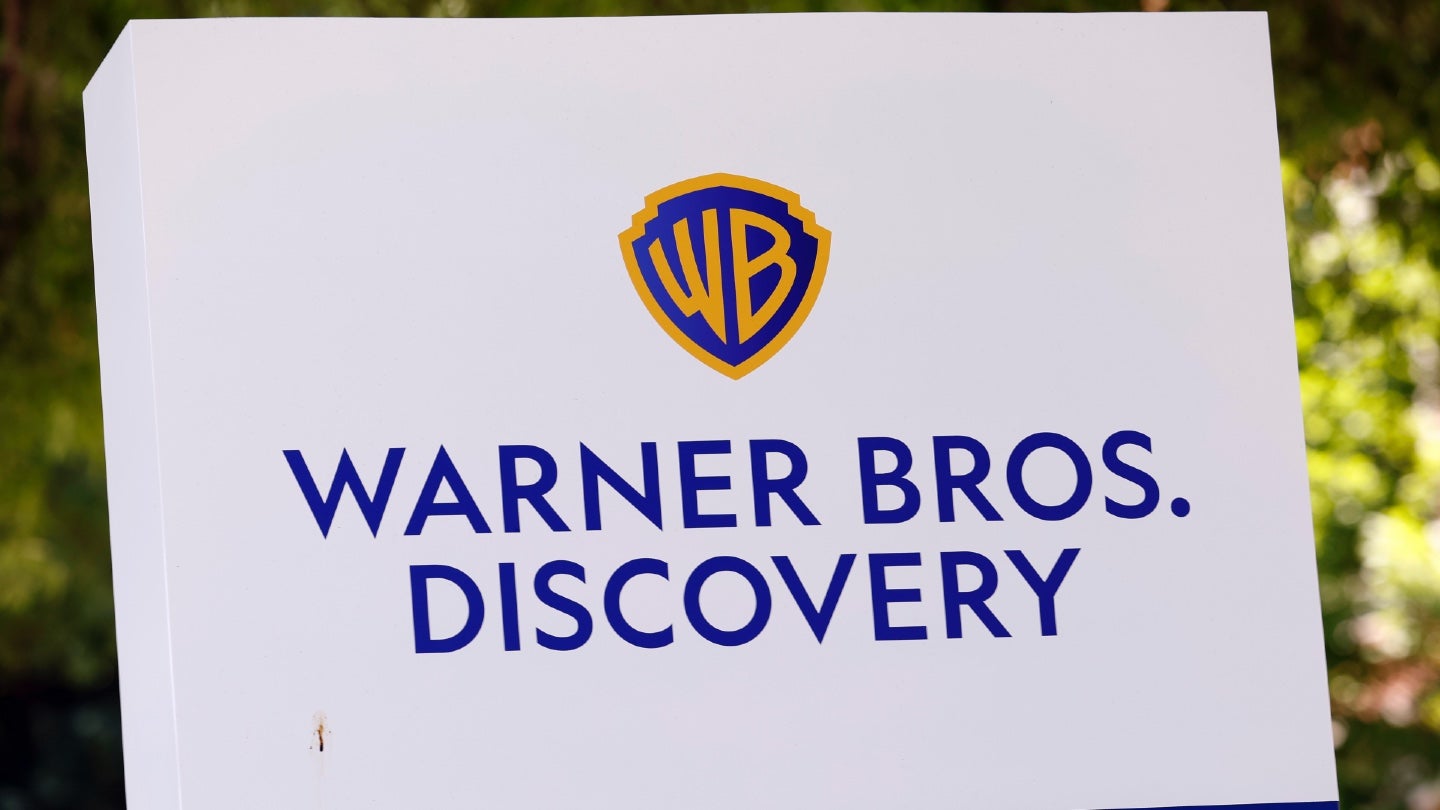
The Warner Bros. Discovery (WBD) media and entertainment giant lost $10 billion during the second quarter (Q2) of 2024, while revenue was also down 5% (ex-FX).
WBD noted that the net loss – $9.98 billion compared to a $1.24 billion in Q2 of 2023 – was heavily contributed to by a “non-cash goodwill impairment charge” from the networks sector, which includes the TNT and Eurosport broadcasters.

Discover B2B Marketing That Performs
Combine business intelligence and editorial excellence to reach engaged professionals across 36 leading media platforms.
In outlining these Q2 financial results yesterday (August 7), for the three months up to June 30, WBD also noted that total quarterly revenue was down year-on-year from $10.35 billion to $9.71 billion.
Overall, total earnings before interest, taxation, depreciation, and amortization (EBITDA) came to $1.8 billion, a decrease of 15% year-on-year.
The aforementioned goodwill charge refers, essentially, to WBD reducing the accounted value of its own media assets.
The aforementioned networks segment saw an 8% revenue decrease, from $5.75 billion to $5.27 billion.

US Tariffs are shifting - will you react or anticipate?
Don’t let policy changes catch you off guard. Stay proactive with real-time data and expert analysis.
By GlobalDataBoth distribution and advertising income in this sector fell, by 8% and 9%, respectively.
Indeed, WBD noted that Q2 saw a “9% decrease in domestic linear pay-TV subscribers,” and a 13% drop in domestic networks total audience.
However, content revenue for networks increased by 5%, while operating expenses also decreased by 8%. EBITDA in that sector fell by 7% to $1.99 billion.
For WBD’s direct-to-consumer (DTC) segment, revenue also fell year-on-year, in this case by 5%, from $2.73 billion to $2.56 billion.
This segment covers the HBO, Max, and Discovery+ streaming services. The latter two platforms are currently engaged in streaming the ongoing Paris Olympics to audiences across Europe.
This came despite an increase of 3.6 million subscribers from Q1, with that figure up to 103.3 million at the end of June.
In terms of the different revenue sectors for DTC, there was a 99% rise in advertising income, but a 70% fall in revenue from content. Distribution income, meanwhile, increased by 1%.
The advertising revenue increase was driven by “higher domestic Max engagement.”
A lower number of third-party licensing deals, meanwhile, was the main factor behind the significant content revenue drop.
EBITDA for DTC amounted to $107 million.
David Zaslav, president and chief executive at WBD, said in a statement accompanying the results: “At Warner Bros. Discovery, our top priority is our global direct-to-consumer business and we are extremely pleased with the growing momentum we are seeing, as demonstrated by another strong quarter of growth with 3.6 million net adds, fuelled by our ongoing international expansion and investment in high quality, diverse content.
“In light of industry headwinds, we have and will continue taking bold steps, like reimagining our existing linear partnerships and pursuing new bundling opportunities."
These results have come in the midst of what is being seen by many as a crisis – in terms of sports coverage – at WBD.
Late July saw the broadcaster formally file a lawsuit against the NBA after the top US basketball league rejected its matching bid for domestic media rights in the next cycle.
The lawsuit was officially filed by WBD in New York County Supreme Court and alleges that the league breached its contract with the company by turning down its offer and instead signing a deal with Amazon.
WBD initiated legal action two days after the NBA signed a new 11-year media rights deal worth around $76 billion with Disney, NBC, and Amazon Prime Video that runs from the 2025-26 season through 2035-36.
WBD claimed to have exercised the matching clause in its existing NBA contract to compete with Amazon’s $1.8 billion offer, but the NBA confirmed it had rejected the last-minute bid as it did not match the terms of the retail giant’s proposal.
WBD has previously referred to NBA broadcast rights as a “unique asset that cannot be replaced” and is now prepared to challenge the league in court to retain a property it has spent billions of dollars on in both rights fees and production.





